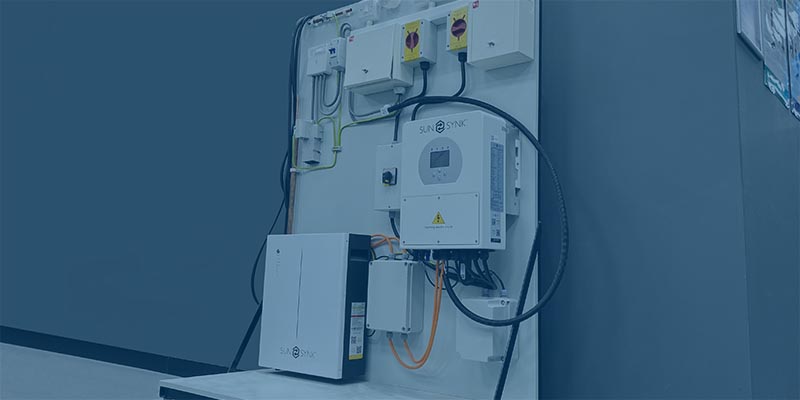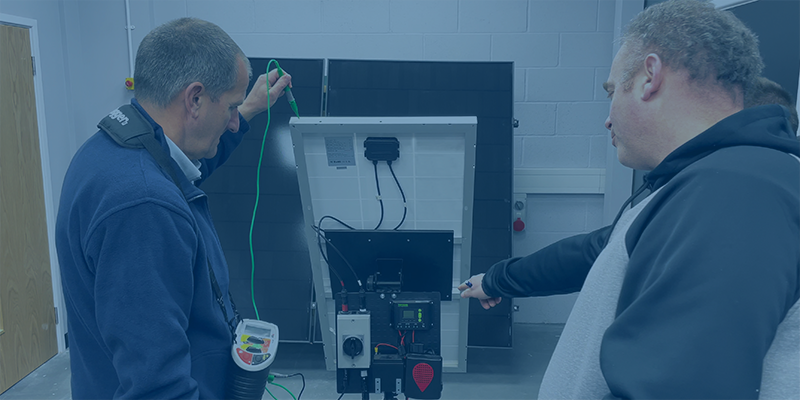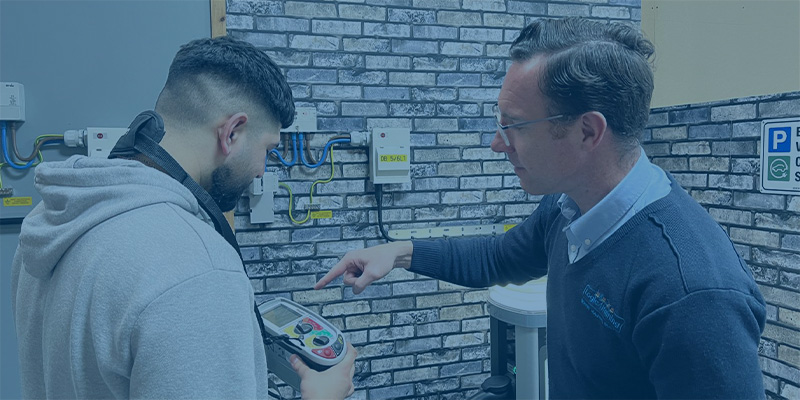
Battery Storage Course Level 3 RQF electrical energy battery storage training
Save 50% on our electrical energy storage systems (EESS) course when you book with solar photovoltaic (PV) training.
The battery storage course is for experienced electricians, providing the skills and theory to install and maintain Electrical Energy Storage Systems (EESS).
Take advantage of our package deal: Save 50% EESS course when you book with Solar PV training.
Electrical Energy Storage Systems or ‘battery storage’ allow homeowners to store power, usually generated by renewable technology.
Most commonly linked to solar PV, electrical energy storage systems (EESS) are growing in popularity, helping consumers to use electricity in the most cost-effective way by more than doubling self-consumption – with current energy prices sky high, there is more money to be saved in using power generated rather than selling it back to the grid.
Battery storage can also be used without solar (or wind), allowing savvy homeowners to store electricity at cheaper times for use during peak demand.
The LCL Awards Level 3 Qualification in the Design, Installation & Commissioning of Electrical Energy Storage Systems is for experienced electrical operatives, providing the skills and theory required to join this emerging marketplace.
The ideal accompaniment to solar photovoltaics, the course covers the installation and maintenance of EESS/battery storage systems, including practical training on purpose-built rigs, regulations and safety considerations.
Candidates will learn how to correctly size a battery based on individual applications in order to meet customer needs and ensure optimum energy bill savings.
The course is recognised by the Microgeneration Certification Scheme (MCS) – successful candidates can use it towards gaining MCS accreditation. An MCS certified system will give customers peace of mind, is a pre-requisite of any grants that may be available and will help end-users achieve the best export tariffs for power returned to the grid.
The course covers the design and installation of electrical energy storage systems, including the following areas:
- Electrical energy storage system installation
- Arrangements and operating modes
- Design and specification
- Pre-installation preparation
- Health & safety
- Initial verification and handover
The course is designed for experienced electrical operatives who must have the following qualifications:
- 18th Edition Wiring Regulations (BS7671:2018)
- Level 3 Electrotechnical Qualification (S/NVQ) (or equivalent)
- Level 3 qualification in the Initial Verification and Certification of Electrical Installations
The course equips candidates with the knowledge to:
- Design, install, commission, and maintain Electrical Energy Storage Systems (EESS).
- Correctly size batteries for specific applications to meet customer needs.
- Understand system arrangements, operating modes, safety considerations, and regulations.
Battery storage plays a critical role in renewable energy systems by:
- Storing excess electricity generated by solar PV or wind power for later use.
- Doubling self-consumption efficiency, helping homeowners save money on energy bills.
- Allowing electricity storage during off-peak hours for use during peak demand times.
Most lithium-ion battery storage systems have a lifespan of approximately 10 years. Over time, they experience gradual degradation, typically retaining around 80% of their original capacity after a decade.
Yes, battery storage systems can be installed independently of solar panels. They allow homeowners to store electricity purchased during off-peak hours for use during peak demand periods, maximising cost savings.
Lithium-ion batteries dominate the market due to their efficiency and reliability. Popular brands include Tesla Powerwall, Sonnen, LG Chem, Powervault, and SolaX.
Yes, this course will allow you to become MCS certified. Read our article How to become MCS certified, to learn more.










